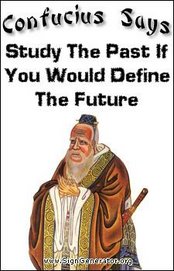The Greek paradigm of deities is often criticized as having too many contradictions, too many 'versions of story' and other shortcomings. These things are TRUE, however, should not be considered 'shortcomings.' If you think of a little bit of history BEHIND the creation of Greek myth, characters, deities, etc., then the discrepancies in versions of myth, character representation, and other slight confusions will no longer hinder your enjoyment of learning about the Greek pantheon of Gods and Goddesses.
Just as a reminder - histories and hints BEHIND the 'creations' are found in the real lives of the creators who lived so long ago. If they were at a loss to understand certain events happening in their time, they had to start testing out 'explanations' that helped their minds rest more at ease in the face of great amounts of unexplained phenomena.
Likely, ZEUS (with his symbolic THUNDERBOLT) was a partial explanation behind 'why are there storms?' Quite notably, Zeus' personality has an unstable quality - just like the weather often does as it changes from pleasant to stormy. Zeus' moods are unpredictable like the weather - and he has problems with controlling his temper. When Zeus loses his temper (which is often!), he is described in much the same way that we describe stormy weather...violent winds (Zeus darting around, ranting and raving), lightning strikes (Zeus pounding his thunderbolt on the ground in a terrible fit), and howling wind (Zeus yelling and screaming).
Zeus is typically considered the 'Father' of all the Olympian deities, yet he doesn't ACT very responsible. His words are considered 'the final words' yet he often changes his mind about 'final decisions' once they're made. If comparing to 'weather' - Zeus is, again, much like the weather. The present state of weather is indisputable like the 'final words' of Zeus....however, the weather is bound to change - much like Zeus is apt to change his mind about things. If comparing Zeus' personality and characteristics to 'real people,' then Zeus is also very much like a real person. Many Fathers don't always act responsible. Many fathers are authorities in the household, yet will change their mind often about rules of the house.
One of the most notable quirks in Greek myth - is the account of arrival of one of Zeus' daughters. Even Ancient people knew quite a bit about the birds and the bees, reproduction, and other gender or sexual matters, however, one of Zeus' daughters is birthed directly from Zeus - without having a mother! One account says the daughter is born out of Zeus' thigh, which even the ancients would not have truly believed as fact.
The reason why an account of this would be taken in and 'believed' (passed on as an integral part of the story - from generation to generation):
To account for MALE AUTHORITY in Ancient times. The myth isn't designed to explain the gods and goddesses. The myth is created to explain social, power and gender positioning! Therefore - though the account sounds ridiculous - it serves a very important and serious purpose - to have males strive to take responsibility or positions as fathers, to place men at the top of power structures in society and in families, to re-assert MALE DOMINANCE in a society that did, indeed, have women in power positions from time to time. Within the vast pantheon of Greek deities, there are a great number of powerful, respected WOMEN. An account of Zeus birthing a child on his own places the male Zeus in a very mighty position, making a very strong statement about the power of men over children, the existence of men as individuals. (Wife, Hera also birthed a child completely without Zeus, in certain accounts involving the birth of Hephaestus).
These are just bare examples of the discrepancies that occur in Greek myth. To tell the truth, I've become more interested in studying 'discrepancies' than in detailing particular accounts of Greek mythological characters and events. The discrepancies hold great value to me - of explaining what the Ancient Greeks were like, why they decided to alter details of their stories, what characteristics and materials they valued years ago, which qualities they considered human vices, what kind of social positions they valued, etc. I will never be without material to study in this area. I have a long list of 'versions' to compare and of discrepancies to investigate concerning the Greek gods and goddesses. It it likely that I will know much more about the myriad of characters (thousands!) and their notable actions as a whole - well before I ever get even half-way finished my list of research items, simply because Greek myth is inherently FULL OF discrepancies and alterations.
I don't believe that one can go barging into Greek myth WITHOUT understanding the presence of 'discrepancy' in accounts. To stumble in blindly - expecting mostly 'whole' and 'reasonable' accounts of the deities would be akin to blindly expecting to learn Greek language within a day - without first the basics of how English works.
That all said, my next post will outline the Greek 'Olympian' deities and many of their interesting, mis-fitted discrepancies.
tr~~
Thursday, March 15, 2007
Before Delving Into The Olympians
Subscribe to:
Post Comments (Atom)












No comments:
Post a Comment